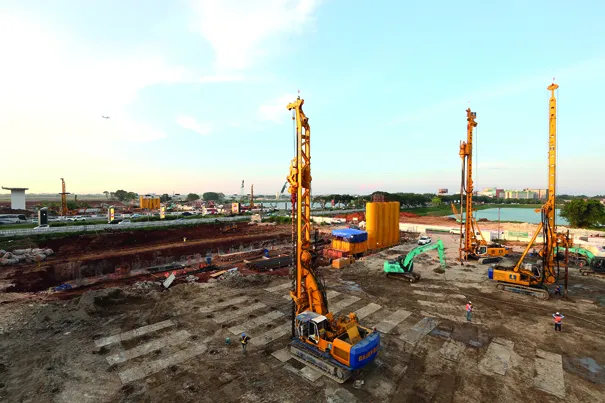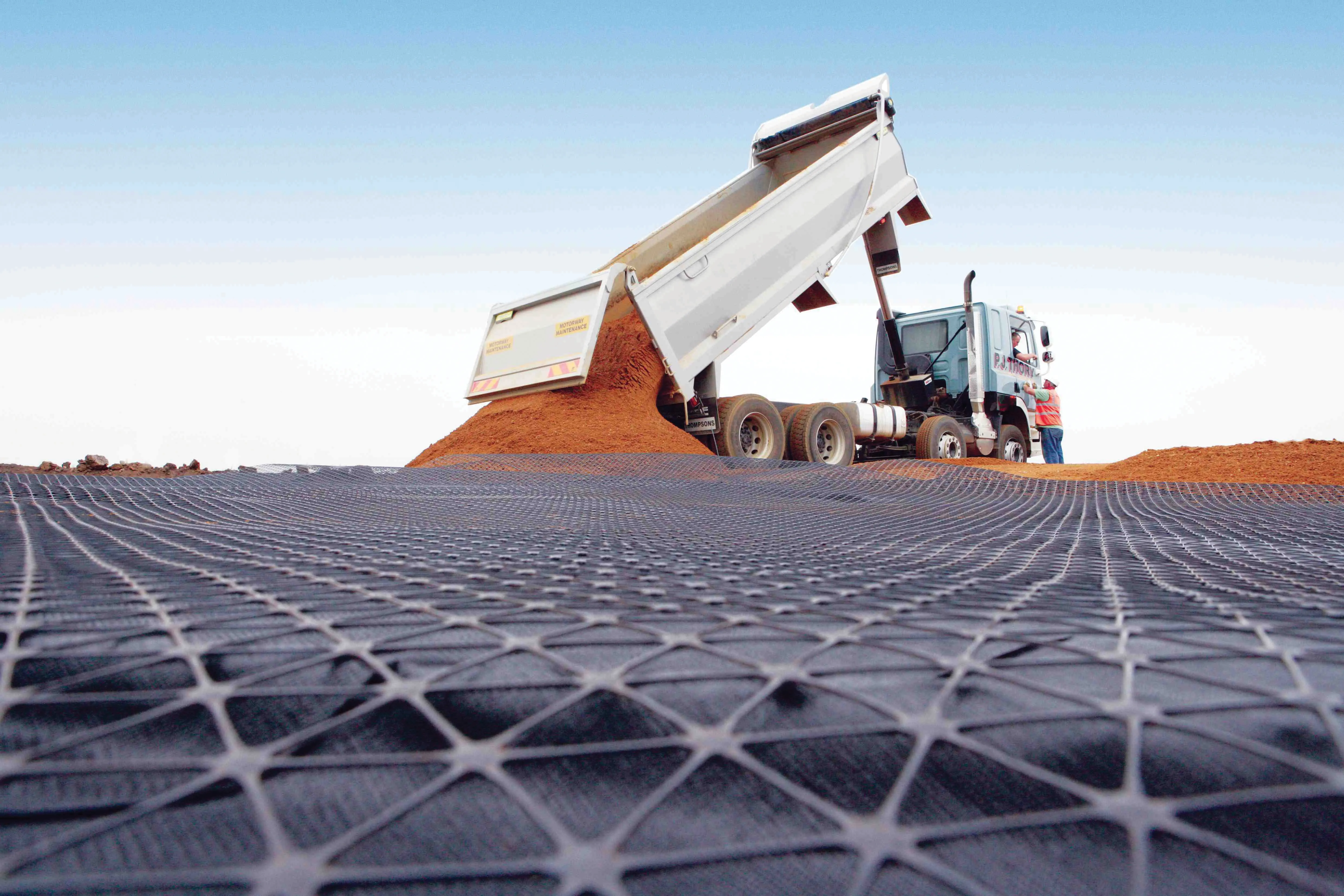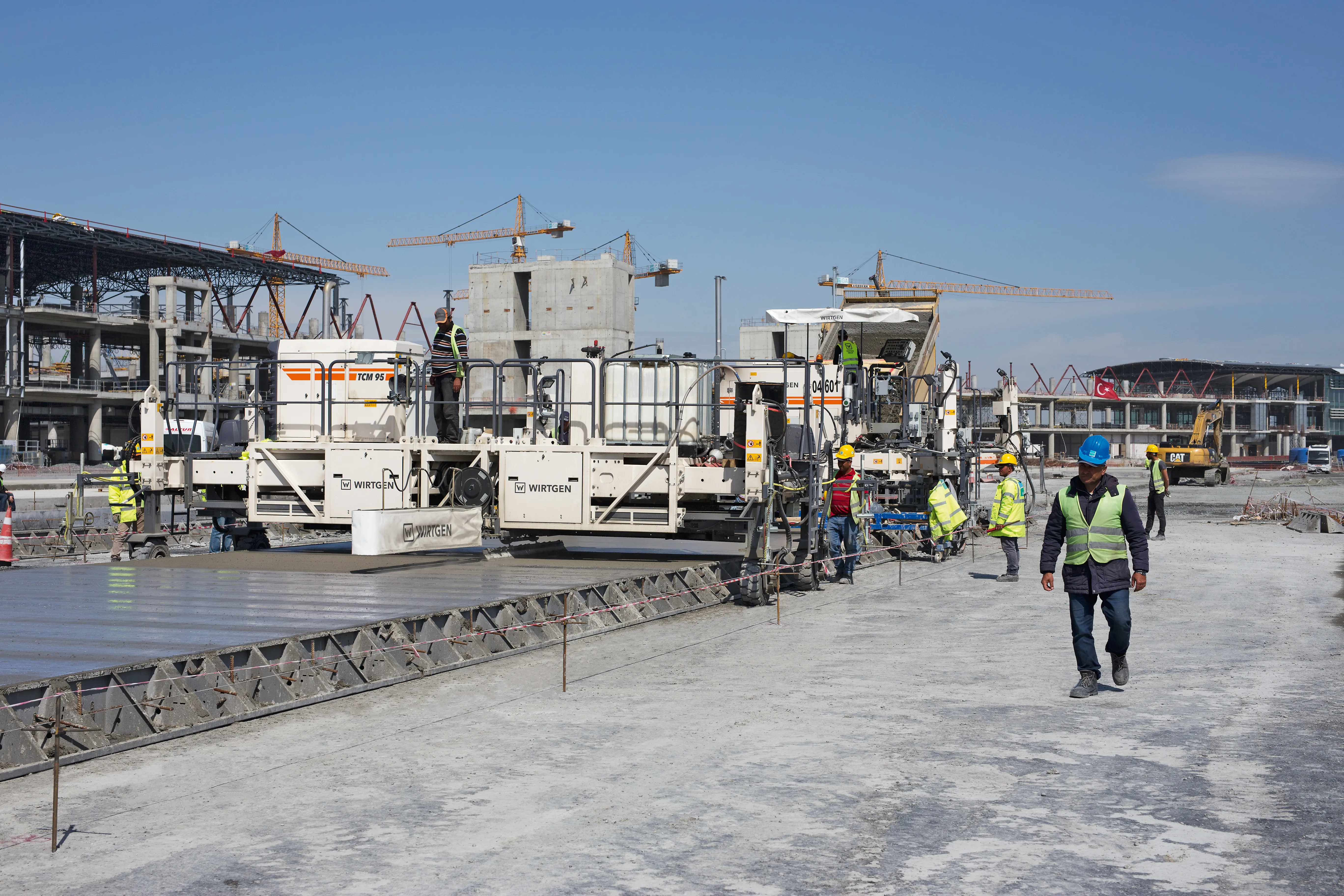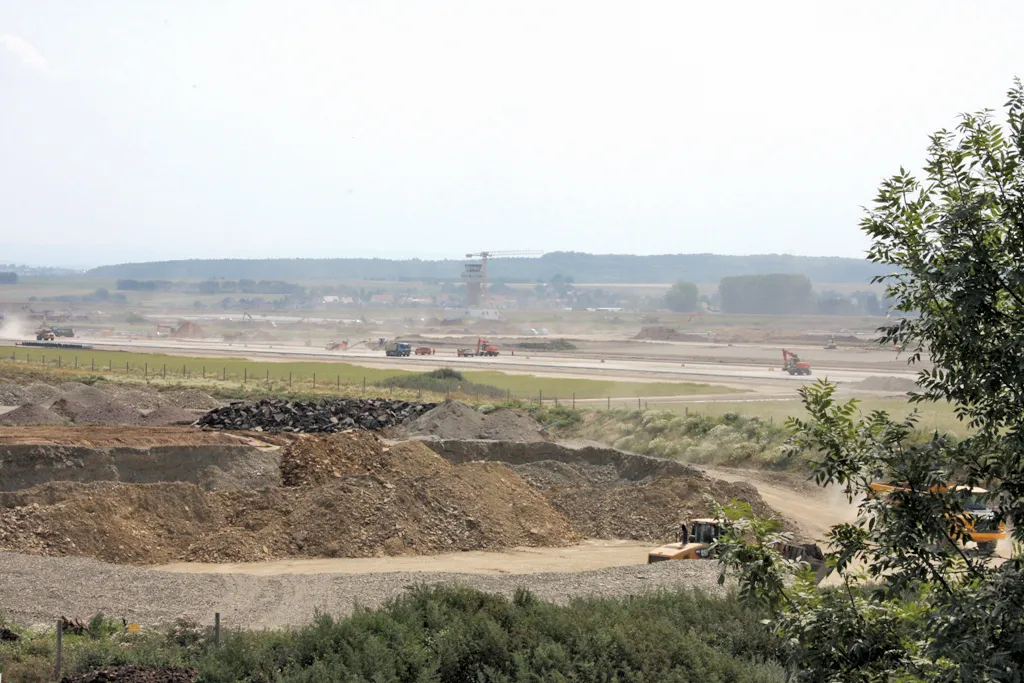
Handling around 63 million passengers in 2017 and over 447,000 flight movements/year, the aircraft handling facilities were becoming too crowded. The answer was to construct a new connecting taxiway linking the existing runways at the east side of the airport. Previously, there was only one connecting taxiway located at the west side of the airport which supported for all aircraft movement.
PT
The project title was the East Connection Taxiway Phase 1 and the work included two main tasks: extensive ground improvement for the connection between the north and south runways, and foundation work for taxiway bridges over the airport’s main access road. This project was a continuation of the previous Secondary Apron project that was completed in May 2017, located at the north side of the airport where Bauer also carried out 98,300m2 of ground improvement work as the initial part of the East Cross Taxiway.
Ground improvement work was needed to increase the capacity of in-situ soil prior to pavement work. The in-situ soil is dominantly soft to medium stiff silty clay but with the work, it was expected to reach a CBR value (mechanical strength) of 6% under the pavement layer. Meanwhile, the allowable settlement is a maximum of 100mm in 10 years after construction.
The ground improvement was executed with 5-16m-deep full displacement columns (FDC) over a total area of 199,000m2. And for the foundation of the taxiway bridges, a total of 1,072 bored piles with diameters of 1.2m were drilled to a depth of 37m.
Three BAUER BG 14 rigs, one BG 22, one BG 28 and their accessories were in operation. The project commenced in February 2018 and was completed over a period of eight months in October 2018.









